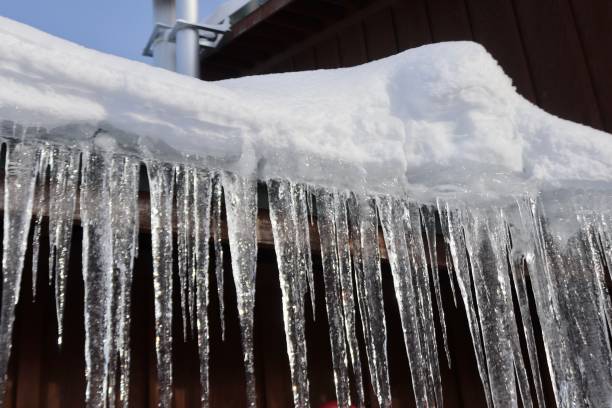Are you looking for help and advice concerning Prevent Frozen Pipes ?

Winter can damage your plumbing, especially by freezing pipes. Here's just how to stop it from occurring and what to do if it does.
Introduction
As temperatures decline, the danger of frozen pipelines boosts, possibly causing expensive repair work and water damage. Recognizing exactly how to stop frozen pipes is crucial for homeowners in cold environments.
Avoidance Tips
Insulating susceptible pipes
Wrap pipes in insulation sleeves or utilize warmth tape to protect them from freezing temperatures. Focus on pipelines in unheated or outside locations of the home.
Home heating techniques
Maintain interior rooms sufficiently heated, specifically areas with plumbing. Open cupboard doors to allow warm air to flow around pipes under sinks.
Exactly how to recognize frozen pipes
Seek decreased water flow from taps, uncommon odors or noises from pipes, and noticeable frost on revealed pipes.
Long-Term Solutions
Structural modifications
Think about rerouting pipelines away from exterior walls or unheated areas. Add extra insulation to attics, basements, and crawl spaces.
Upgrading insulation
Purchase top notch insulation for pipelines, attic rooms, and walls. Appropriate insulation helps maintain consistent temperatures and lowers the threat of icy pipes.
Protecting Exterior Pipes
Yard hoses and exterior taps
Separate and drain garden pipes before winter months. Mount frost-proof faucets or cover outside taps with insulated caps.
Understanding Icy Pipes
What causes pipelines to freeze?
Pipelines freeze when subjected to temperatures listed below 32 ° F (0 ° C) for extended durations. As water inside the pipelines freezes, it broadens, taxing the pipe wall surfaces and possibly causing them to rupture.
Threats and damages
Frozen pipelines can bring about supply of water disturbances, home damages, and expensive fixings. Ruptured pipelines can flooding homes and cause extensive structural damage.
Signs of Frozen Pipeline
Identifying frozen pipes early can stop them from breaking.
What to Do If Your Pipes Freeze
Immediate actions to take
If you suspect icy pipes, maintain faucets open to soothe stress as the ice melts. Make use of a hairdryer or towels soaked in warm water to thaw pipelines slowly.
Verdict
Avoiding icy pipelines requires positive measures and quick actions. By understanding the causes, indications, and safety nets, home owners can safeguard their pipes throughout winter.
Helpful Tips to Prevent Frozen Pipes this Winter
UNDERSTANDING THE BASICS: WHY PIPES FREEZE AND WHY IT’S A PROBLEM
Water freezing inside pipes is common during the winter months, but understanding why pipes freeze, and the potential problems it can cause is crucial in preventing such incidents. This section will delve into the basics of why pipes freeze and the associated problems that may arise.
THE SCIENCE BEHIND FROZEN PIPES
When water reaches freezing temperatures, it undergoes a physical transformation and solidifies into ice. This expansion of water as it freezes is the primary reason pipes can burst. As the water inside the pipe freezes, it expands, creating immense pressure on the walls. If the pressure becomes too great, the pipe can crack or rupture, leading to leaks and water damage.
FACTORS THAT CONTRIBUTE TO PIPE FREEZING
- Low Temperatures: Extremely cold weather, especially below freezing, increases the risk of pipes freezing.
- Uninsulated or Poorly Insulated Pipes: Pipes located in unheated areas, such as basements, crawl spaces, or attics, are more prone to freezing. Insufficient insulation or lack of insulation altogether exacerbates the problem.
- Exterior Wall Exposure: Pipes running along exterior walls are susceptible to freezing as they encounter colder temperatures outside.
- Lack of Heating or Temperature Regulation: Inadequate heating or inconsistent temperature control in your home can contribute to frozen pipes.
PROBLEMS CAUSED BY FROZEN PIPES
WHY CERTAIN PIPES ARE MORE PRONE TO FREEZING
- Pipe Bursting: As mentioned earlier, the expansion of water as it freezes can cause pipes to burst, resulting in significant water damage.
- Water Damage: When pipes burst, it can lead to flooding and water damage to your property, including walls, ceilings, flooring, and personal belongings.
- Structural Damage: Prolonged exposure to water from burst pipes can compromise the structural integrity of your home, leading to costly repairs.
- Mold and Mildew Growth: Excess moisture from water damage can create a favorable environment for mold and mildew growth, posing health risks to occupants.
- Disrupted Water Supply: Frozen pipes can also result in a complete or partial loss of water supply until the issue is resolved.
https://busybusy.com/blog/helpful-tips-to-prevent-frozen-pipes-this-winter/
- Location: Pipes located in unheated or poorly insulated areas, such as basements, crawl spaces, attics, or exterior walls, are at higher risk of freezing.
- Exterior Pipes: Outdoor pipes, such as those used for irrigation or exposed plumbing, are particularly vulnerable to freezing as they are directly exposed to the elements.
- Supply Lines: Pipes that carry water from the main water supply into your home, including the main water line, are critical to protect as freezing in these lines can affect your entire plumbing system.
- Underground Pipes: Pipes buried underground, such as those connected to sprinkler systems or outdoor faucets, can be susceptible to freezing if not properly insulated.

I came across that write up about How to prepare your home plumbing for winter weather when doing a lookup on the web. If you please take the opportunity to distribute this blog post if you enjoyed reading it. Thank you for being here. Revisit us soon.
Browse Website
Comments on “Safeguarding Your Pipes from Freezing Issues: Critical Strategies”